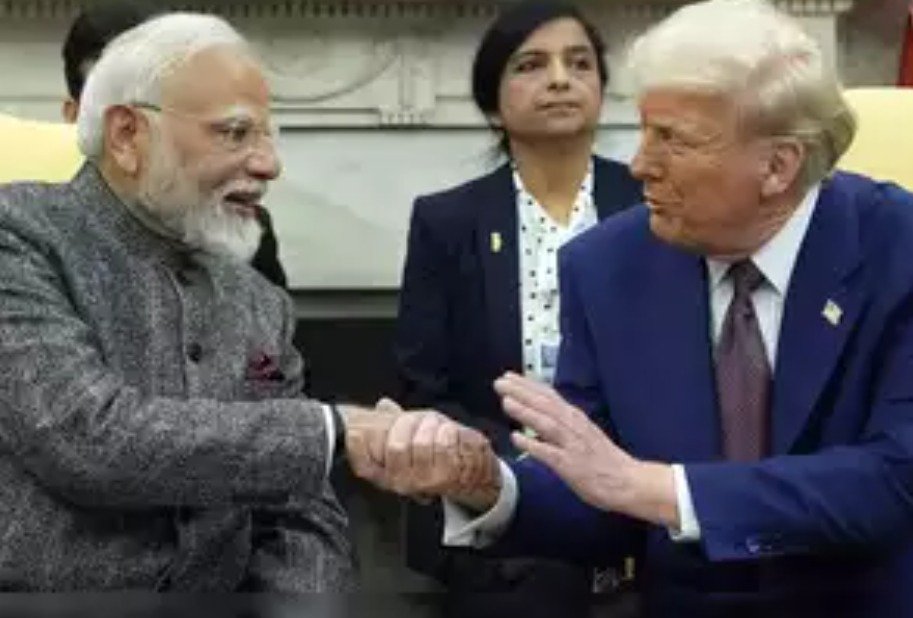New Delhi: In a significant move aimed at strengthening trade ties and averting potential retaliatory measures from the United States, India is reportedly considering another round of import duty reductions ahead of April 2. Sources familiar with the discussions indicate that the government is weighing duty cuts on four to five products specifically targeted for the US market.
The decision comes in response to US President Donald Trump’s warning about imposing reciprocal tariffs on countries he believes have been unfairly benefiting from trade with the United States by maintaining high import duties on American goods. Trump has consistently criticized several trading partners, including India, for what he perceives as an imbalanced trade arrangement that places American businesses at a disadvantage.
Context of the Decision
India has previously undertaken tariff reductions as part of its broader strategy to maintain favorable trade relations with the US. The latest move is expected to further align with India’s ongoing efforts to ease trade tensions, especially in light of Trump’s emphasis on economic nationalism and fair trade practices.
Officials involved in the deliberations suggest that the proposed duty reductions will be applied selectively, targeting products of strategic importance to the US market. While the final list of items remains under consideration, sources indicate that sectors such as pharmaceuticals, electronics, and certain high-value industrial goods could be among those affected.
US-India Trade Relations: A Balancing Act
India and the US have long shared a complex trade relationship, characterized by both collaboration and contention. While the US remains one of India’s largest trading partners, bilateral trade has occasionally been marred by disputes over tariffs, market access, and intellectual property rights.
In recent years, Washington has expressed dissatisfaction with India’s trade policies, particularly regarding its high import duties on key American exports such as motorcycles, medical devices, and agricultural products. The Trump administration, under its “America First” policy, has sought to renegotiate trade terms with multiple nations, including India, to secure more favorable conditions for American businesses.
Previous Duty Cuts and Trade Concessions
This potential round of import duty reductions follows previous instances where India made concessions to assuage US trade concerns. In 2019, for instance, India lowered tariffs on select American products, including certain types of almonds and apples, in an effort to address trade imbalances.
Additionally, India has made strides in improving market access for American companies in sectors like e-commerce, medical equipment, and financial services. However, issues such as data localization requirements and pricing controls on medical devices have continued to be sticking points in bilateral trade discussions.
Strategic Considerations Behind the Move
The timing of the proposed tariff reductions is crucial. With the US set to announce reciprocal tariffs on April 2, India’s proactive approach could help mitigate any potential economic repercussions. By demonstrating a willingness to accommodate American concerns, India aims to maintain a positive diplomatic and trade rapport with Washington.
Moreover, reducing import duties could also serve India’s broader economic interests. Lower tariffs may encourage greater US investment in Indian industries, fostering job creation and technological advancement. It could also lead to an overall reduction in the cost of imported goods, benefiting Indian consumers and businesses alike.
Challenges and Potential Pushback
Despite the potential benefits, the move to reduce import duties may face resistance from certain domestic industries that rely on protective tariffs to remain competitive. Indian manufacturers, particularly in sectors where import competition is strong, may argue that lower tariffs could lead to market saturation and reduced profitability.
Additionally, trade analysts caution that while such tariff reductions may offer short-term relief, they do not guarantee immunity from future US trade actions. Given the unpredictable nature of Trump’s trade policies, India may still need to prepare for further negotiations or countermeasures.
Conclusion: Strengthening Economic Ties Amid Uncertainty
India’s decision to consider deeper import duty cuts for US-bound products reflects its strategic intent to maintain a stable trade relationship with Washington while safeguarding its own economic interests. As the April 2 deadline approaches, all eyes will be on the specifics of the tariff reductions and their impact on US-India trade dynamics.
Whether this move will be sufficient to appease US concerns and prevent the imposition of reciprocal tariffs remains to be seen. However, by taking a proactive stance, India underscores its commitment to fostering an open and cooperative trade environment, even in the face of evolving global economic challenges.

